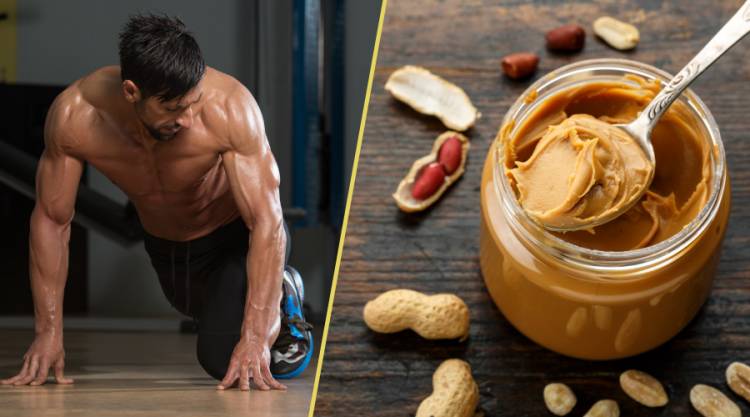
Peanut Butter and Fitness: A Nutrient-Packed Addition to Athletes' Diets
I. Introduction
Peanut butter, with its rich and creamy texture, has become a staple in many households worldwide. From a humble sandwich spread to a versatile ingredient in various recipes, its popularity is undeniable. However, beyond its delicious taste, peanut butter packs a punch in terms of nutrition, making it an excellent addition to athletes' diets. In this article, we will explore the nutritional powerhouse that is peanut butter and delve into the myriad benefits it offers to individuals striving for peak physical performance.
II. The Nutritional Powerhouse
Let's break down the key nutrients found in peanut butter that make it stand out in the realm of nutrition.
-
Protein Content: Peanut butter is a potent source of protein, a crucial macronutrient for muscle repair and growth. For athletes engaged in regular physical activity, maintaining optimal protein intake is essential for supporting their training regimen.
-
Healthy Fats: Contrary to the misconception that all fats are detrimental, peanut butter contains healthy fats—monounsaturated and polyunsaturated fats. These fats contribute to sustained energy levels and cardiovascular health, both of which are vital for athletes.
-
Fiber: The fiber content in peanut butter aids in digestion and helps regulate blood sugar levels. Athletes benefit from the steady release of energy provided by the combination of healthy fats and fiber, supporting endurance during workouts.
-
Vitamins and Minerals: Peanut butter is a source of various vitamins and minerals, including potassium, magnesium, and vitamin E. These micronutrients play essential roles in muscle function, immune support, and overall well-being.
III. Energy Boost for Athletes
Athletes often require a quick source of energy to fuel their workouts and competitions. Peanut butter, with its carbohydrate content, proves to be a valuable ally in meeting these energy demands.
-
Carbohydrates in Peanut Butter: While not a high-carb food, peanut butter does contain carbohydrates, contributing to the quick energy needed before physical activities. Incorporating it into pre-workout snacks or meals can provide the necessary fuel for optimal performance.
-
Benefits During Pre-Workout: Consuming peanut butter before a workout can enhance endurance, delay fatigue, and improve overall performance. The combination of carbohydrates and healthy fats supports sustained energy release, making it an ideal choice for athletes.
IV. Muscle Building and Recovery
The high-quality protein in peanut butter plays a crucial role in muscle development and recovery, making it a go-to food for athletes aiming to maximize their training gains.
-
High-Quality Protein: Peanut butter contains all essential amino acids, making it a complete protein source. These amino acids are the building blocks of muscle tissue, aiding in repair and growth.
-
Post-Workout Peanut Butter Snacks: Incorporating peanut butter into post-workout snacks can accelerate the recovery process. Simple recipes like peanut butter and banana protein smoothies or peanut butter energy balls offer a tasty and effective way to replenish energy stores and promote muscle repair.
V. Weight Management with Peanut Butter
Contrary to the misconception that peanut butter contributes to weight gain, it can be a valuable asset in weight management for athletes.
-
Role in Satiety: The combination of protein, healthy fats, and fiber in peanut butter promotes a feeling of fullness. This satiety factor can help athletes control their appetite, making it easier to adhere to a balanced and controlled diet.
-
Supporting Weight Loss and Maintenance: When consumed in moderation as part of a well-rounded diet, peanut butter can be included in weight loss or maintenance plans. The nutrient density it offers makes it a satisfying addition without compromising nutritional goals.
VI. Peanut Butter Varieties
Peanut butter comes in various forms, including creamy, crunchy, and natural varieties. Athletes can choose the type that aligns with their taste preferences and fitness goals.
-
Overview of Different Types: Creamy peanut butter is smooth and easy to spread, while crunchy provides a delightful texture with small peanut pieces. Natural peanut butter contains minimal added ingredients, appealing to those who prefer a more straightforward option.
-
Choosing the Right Type: Athletes may consider their personal preferences and nutritional needs when selecting the type of peanut butter. For example, those seeking more protein might opt for crunchy varieties with additional peanut pieces.
VII. Peanut Butter and Cardiovascular Health
The healthy fats present in peanut butter contribute to cardiovascular health, an aspect that is crucial for athletes aiming to maintain overall well-being.
-
Impact on Cholesterol Levels: The monounsaturated and polyunsaturated fats in peanut butter can positively impact cholesterol levels. Including moderate amounts of peanut butter in a heart-healthy diet supports cardiovascular health.
-
Cardiovascular Support for Athletes: Endurance athletes, in particular, benefit from the cardiovascular support provided by peanut butter. The combination of healthy fats and antioxidants contributes to optimal heart function.
VIII. Antioxidant Properties
Peanut butter boasts antioxidant properties, thanks to compounds like resveratrol. These antioxidants play a role in mitigating oxidative stress and inflammation, common challenges faced by athletes.
-
Presence of Antioxidants: Resveratrol, a natural antioxidant found in peanuts, contributes to reducing inflammation and supporting overall recovery.
-
Fighting Inflammation in Athletes: Incorporating peanut butter into the diet can be a strategic choice for athletes looking to manage inflammation, potentially reducing the risk of injury and improving recovery times.
IX. Nut Allergies and Alternatives
While peanuts are a common allergen, there are alternatives for individuals with nut allergies or those seeking variety in their nutrition.
-
Addressing Concerns: Individuals with nut allergies should explore alternative spreads such as sunflower seed butter, soy nut butter, or almond butter. These options offer similar nutritional benefits without the risk of allergic reactions.
-
Alternatives for Those Unable to Consume Peanut Butter: Sunflower seed butter, in particular, is a noteworthy alternative that provides a comparable nutrient profile, making it suitable for those with peanut allergies.
X. Peanut Butter and Endurance
Endurance athletes, engaging in prolonged physical activity, can benefit from the sustained energy release provided by peanut butter.
-
Prolonged Energy Release: The combination of carbohydrates, healthy fats, and protein in peanut butter offers a balanced source of energy. This makes it an ideal choice for athletes involved in long-distance running, cycling, or other endurance activities.
-
Incorporating Peanut Butter into Long-Distance Training: Athletes can experiment with incorporating peanut butter into their nutrition plans during long-distance training sessions. Portable options like peanut butter energy gels or sandwiches can provide a convenient and energy-dense solution.
XI. Creative Ways to Include Peanut Butter
Enhancing the palatability of peanut butter can be achieved through creative and delicious recipes.
-
Smoothie Recipes with Peanut Butter: Blend peanut butter into smoothies for a creamy and satisfying beverage. Combining it with fruits, yogurt, and protein powder creates a nutrient-dense and delicious pre- or post-workout treat.
-
Peanut Butter as a Topping or Dip: Beyond spreading it on bread, peanut butter can be used as a topping for oatmeal, yogurt, or pancakes. It also serves as a tasty dip for apple slices, celery, or whole-grain crackers.
XII. Precautions and Moderation
While peanut butter offers numerous benefits, it's crucial to emphasize moderation to prevent potential downsides.
-
Importance of Moderation: Peanut butter is calorie-dense, and excessive consumption may lead to an imbalance in macronutrients, contributing to a surplus of calories. Athletes should be mindful of portion sizes to align with their energy needs.
-
Potential Downsides and Allergies: Individuals with specific allergies or sensitivities should exercise caution and consult with healthcare professionals if necessary. Additionally, those aiming to manage their weight should factor in the caloric density of peanut butter within their overall diet.
XIII. Peanut Butter Supplements for Athletes
For athletes seeking alternative forms of protein supplementation, peanut butter protein powders offer a convenient and concentrated option.
-
Overview of Peanut Butter Protein Powders: These powders extract the protein content from peanuts while minimizing the fat content. They provide a convenient way to boost protein intake without the additional calories from traditional peanut butter.
-
Benefits and Considerations for Supplementation: Athletes should consider factors such as taste preferences, ingredient lists, and overall dietary goals when incorporating peanut butter protein powders. These supplements can be a valuable addition, especially for those with specific protein targets.
XIV. Cooking with Peanut Butter
The versatility of peanut butter extends beyond sandwiches, offering a range of culinary possibilities for fitness enthusiasts.
-
Peanut Butter Protein Bars: Homemade protein bars combining peanut butter, oats, and additional protein sources create a delicious and nutrient-packed snack. These bars are ideal for refueling after workouts or as a convenient on-the-go option.
-
Peanut Butter-Infused Meals: From savory satay sauces to peanut butter-infused desserts, there are numerous ways to incorporate this versatile ingredient into meals. Stir-fries, curries, and even salad dressings can benefit from the richness and flavor that peanut butter adds.
XV. Balancing Peanut Butter in Diet Plans
Integrating peanut butter into well-rounded meal plans requires careful consideration of overall macronutrient intake.
-
Integrating Peanut Butter into Meal Plans: Athletes should strategically incorporate peanut butter to ensure it complements their overall nutritional needs. This includes balancing protein, fats, and carbohydrates to support training goals.
-
Considering Overall Macronutrient Intake: Balancing the macronutrient content of meals is essential for optimizing athletic performance. Athletes can use tools like food diaries or consult with nutrition professionals to fine-tune their diet plans.
In conclusion, peanut butter is not just a tasty spread; it is a nutritional ally for athletes striving for excellence in their physical pursuits. By understanding its unique combination of protein, healthy fats, and other essential nutrients, athletes can leverage peanut butter to enhance their performance, support muscle development, and maintain overall well-being. From pre-workout snacks to post-workout recovery, peanut butter's versatility makes it a valuable asset in the toolkit of any fitness enthusiast. As with any dietary component, moderation and informed choices are key to unlocking the full potential of this nutrient-packed delight in the pursuit of athletic excellence.













